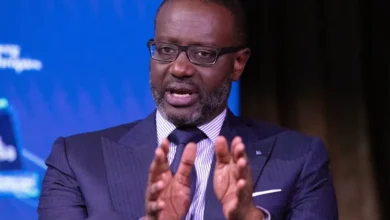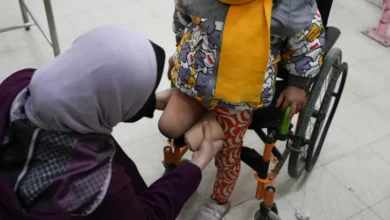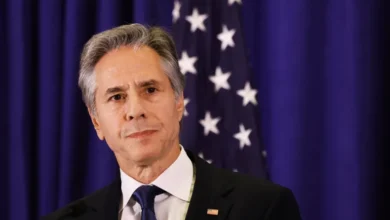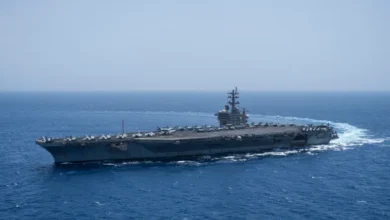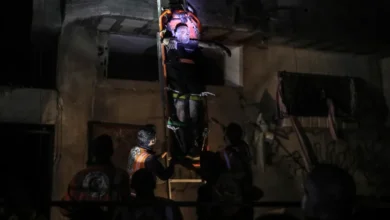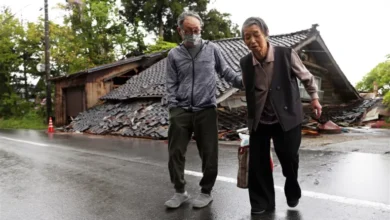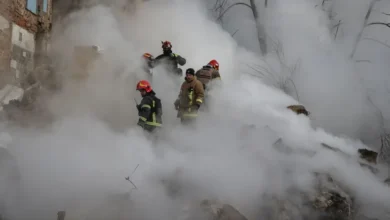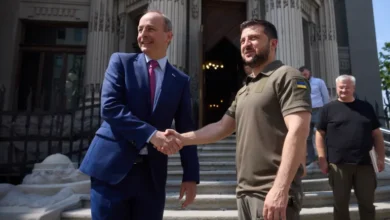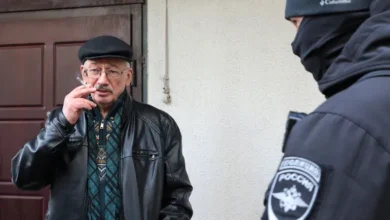A House in Jerusalem holds the memories and grief of Nakba, dispossession
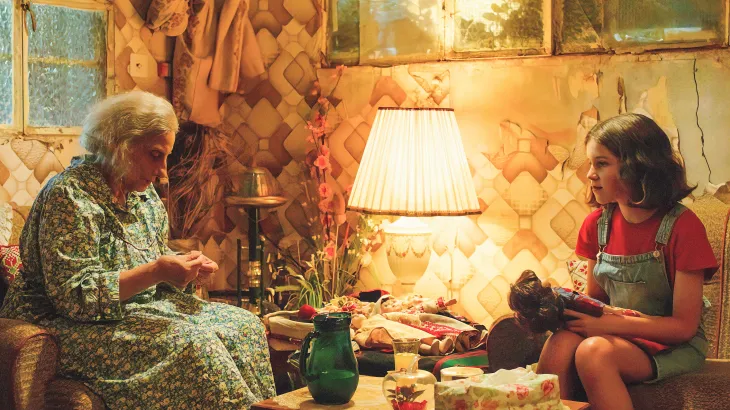
Palestinian film director Muayad Alayan has barely begun talking when he’s interrupted, a producer asking him to slightly move so that he can get a better shot.
Alayan smiles, changing his position. Trim, and in his late 30s, he’s been here before. He knows this story. He’s lived it. He stares into the camera and resumes.
Alayan’s latest film, A House in Jerusalem, tells the story of a British Jewish girl and her father moving into a home they inherited from her grandfather in Jerusalem.
However, on another level, it’s about much more than that.
Alayan’s film, released in cinemas in the United Kingdom last month, details the multiple intersecting traumas, occurring across different families and generations and continents, all connecting in the airy, well-lit rooms of the imposing house of the title.
The setting, Jerusalem, a city that has been divided since 1948 and the eastern half of which has been under occupation since 1967, remains a place of divides as deep as the disputes that simmer there.
In the film, the young girl, Rebecca, goes to Jerusalem with her father, Michael, following a family tragedy.
There, she encounters Rasha, the spirit of a Palestinian girl locked within a tragedy of her own, one reaching all the way back to the 1948 Nakba, when more than 750,000 Palestinians were violently ejected from their homes to clear the way for Israeli settlement.
Alayan knows Jerusalem’s tragedy well. He describes how both sides of his family were forced from the city during the Nakba, the memory of that time living on in the stories of lives and neighbourhoods consigned to the past.
Alayan describes passing through his family’s old neighbourhood, one whose topography he already knew through the stories of his grandfather’s butcher’s shop, where his father had worked – the monasteries, churches and schools that, before 1948, had been their world.
There, he spotted one of the sprawling old houses whose original owners he also knew.
A cab was parked in the driveway.
“This family was getting their luggage out of the van and into the house. It looked like a newly immigrant Jewish family,” he says, describing how he had sat and watched as the parents and their daughter had made their way through the night into the house, the street lamp coating them in an ethereal, almost ghostly light.
“You know, I was like, ‘What if this girl meets the ghosts of the people who lived in this house? What is she being told by her family about this house?’,” he says of the stories families tell themselves about how they come to occupy such imposing and storied properties.
“And what possibly could she find out on her own?”
Memories of the Nakba
Knowing nothing of the history of the region and with her own father consumed by grief, Rebecca – and, by extension, the viewer – is left to chip away at the tragedy of the past on her own.
Earlier this month, tens of thousands of nationalist flag-waving Israelis marched through the Muslim Quarter of the Old City, just a few miles from where Alayan now lives, chanting racist slogans and attacking Palestinians.
To the south, in Gaza, the death toll from Israel’s war on the enclave has surpassed 37,000.
“Thousands and hundreds of thousands of Palestinians were displaced in the Nakba in 1948,” Alayan says. “But never, ever did I imagine that the film would be released during such a time when, once again, hundreds of thousands of Palestinians are displaced, their homes are destroyed and bombed … thousands of people are killed and injured.”
Portraying this through the eyes of children, for whom the fate of a missing doll outweighs the generations of occupation and injustice, was a deliberate choice.
“Children are, through their innocence, brave,” Alayan says, describing how he used the central character of Rebecca, transplanted from England and with no knowledge of the region’s past, to explore Jerusalem and challenge the narratives believed by many modern Israelis to justify the ethnic cleansing of Palestinians in 1948 and the continued occupation of Palestinian territory.
